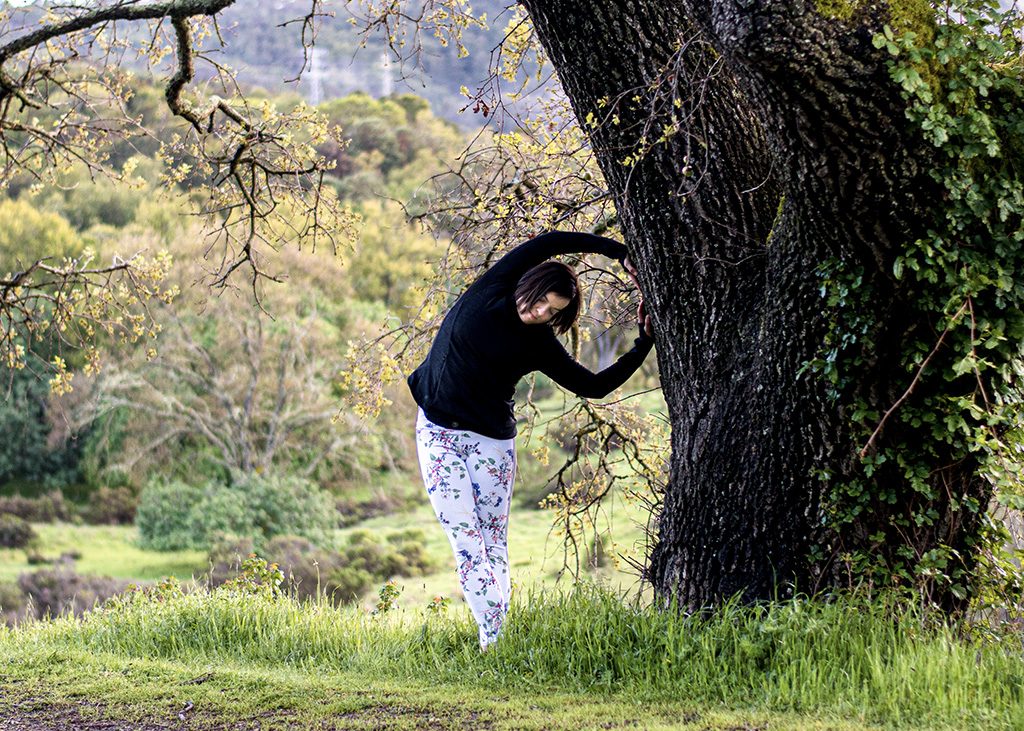
Interested in building emotional resiliency? Self-compassion may be the entry point to expanding your perspective.
I obsess about people. I was born with what my granny called her “what makes people tick?” gene – why does someone think, feel, or act how they do? In my younger years I repeated what people said on TV, moved my face and body exactly as they did, in the hopes that their experience would magically transmit into me. I acted in plays, determined to embody my characters down to their very thoughts.
My need to understand I believe came f rom a need to feel a visceral part of this tribe we call humanity. Curiosity, to me, became a reverent practice of empathy – first toward others and eventually toward myself.
Scientifically, “resilience” is understudied, despite centuries of philosophers pondering the strength of human spirit. Resilience is hard to study because it is hard to quantify. What does it mean to say that a person is resilient?
What Does it Mean to Be Resilient?
This is a question I have found myself repeating. I founded the non-profit Feet on the Ground in 2016 with another YTU teacher Samara Andrade. We both worked with trauma-exposed populations and desired to better educate yoga professionals on the implications of trauma in the body.
With our background in international work, we also had a common drive to reshape the way peace-builders think about psycho-social support in conflict-affected communities. With these goals in mind, we began teaching Trauma-Informed Yoga Trainings and leading workshops for peace-builders about the physiology of trauma & yoga-inspired practices for trauma healing.
Three years later, we are running our first research series to test the efficacy of our methodology in building resilience and reducing trauma symptoms. To develop the series, we could no longer avoid answering the question – how do you measure resilience?
We’ve looked into it, and it turns out that Very Intelligent Folks who study resilience can’t even agree on what it is! Some believe resilience is when a person is little-affected by difficult situations. Others quantify resilience by how quickly a person is able to recover. Still others study “how hard” a person feels it is to bounce back, in a general way.
So one problem we have in the resilience community is that we are all thinking about it differently. Layer on top the difficulty in quantitatively measuring the above definitions, and you start to get an idea of why it is such an esoteric question.
What Neuroscience Adds to the Resilience Conversation
The magic of neuroscience is that in just the last 10 years we have learned so much about the brain and the way it controls how we think, feel, move, and act. The first time I got my hands on a neuroscience article I felt like I was eight again, in my basement singing with Julie Andrews, except this time she turns to me and tells me exactly why she thinks a spoonful of sugar makes the medicine go down!
In neuroscience, I found the answers to so many of my old whys. We can see now, for example, an fMRI scan of someone’s brain activity while they are moving through a stress response. We know better than ever the areas of the brain that control our body’s emergency response system, that detect safety and danger, that process grief or fear.
We know too how these areas develop and change in response to how we were raised, how we are treated, and so much more. Unlike Descartes, we don’t have to sit around pondering mind-body dualism. His theory is rubbish and now we can prove it!
I think of resilience as a person’s ability to weather the rise and falls of their body’s response to the world around them. Our bodies are actually born with an innate capacity for resilience. We are born to move through stress, grief, fear, each at our own pace and in our own way. Resilience is something we all have the capacity for, but also something that has to be fostered.
The Role of Compassion in Resilience
In my work, I have found that the key to fostering resilience is compassion, and the key to compassion is education. Many of us are taught to feel ashamed of our natural response to difficult situations.
Sadness, anger, or fear are seen as the opposite of strength and resilience. In fact, I have experienced that the ability to acknowledge and move through these “less than ideal” emotions is itself resilience.
In our surveys, we ask participants if they are able to feel compassion for themselves when experiencing difficulty. In this way, we observe a person’s ability to feel self-compassion in difficult times as an indicator of resilience, but we can also teach students to cultivate resilience by consciously practicing compassion.
Intentional compassion is largely missing in the fitness community, and I don’t think it’s because people aren’t trying to practice it. I believe it’s because everyone has an 8-year-old Emily inside them with the need to understand why.
We have an innate desire to know ourselves, and it is almost impossible to cultivate self-compassion when “how we are” contradicts what we or society think “we should be”. Therefore I believe that the deepest root of compassion, and therefore resilience, is knowledge.
How Knowledge Shapes Resilience
Resilience is something you can build, one why at a time, one breath at a time.
I know this in my bones. While I have worked in trauma-affected communities for several years, I did not discover this magic sauce until I began incorporating neuroscience education into my teaching.
The feeling in the room is palpable, when someone hears for the first time an answer to their why that is not their own mind saying “because I’m broken.” When you offer a student an answer to their why, you open a gateway to compassion. You offer them the possibility that there is in fact nothing wrong with them.
This is because a fact is not an opinion, so it is not subject to the same scrutiny to which our judgmental minds default. I have seen remarkable change in refugees, survivors of assault, and even everyday humans who come to my studio classes, when I teach them why, scientifically, it is practical to be self-compassionate.
You create your own recipe for resilience, using the building blocks inside you. You do it by integrating compassionate knowledge into your study of yourself and your teaching to others.
Because of this, I hesitate to offer any single practice as one that “builds resilience.” What I can offer is my favorite version of the well-known (and well-studied) Loving Kindness Meditation.
Among other things, this meditation has been shown to increase activity in the insula, the part of the brain responsible for processing empathy toward yourself and others. By itself this meditation cannot do much – but integrated into a widespread effort to cultivate self-compassion, it may just help you give your body the space it needs to regulate against all odds.
Loving Kindness Meditation
Find a way to sit or lay comfortably. After allowing your body time to settle in, consider these phrases as aspirations (not necessarily how you already feel). Repeat them to yourself, either out loud or in your mind:
May I be happy
May I be healthy
May I be safe
May I live a life of ease.
Now imagine someone you care for, picture them in your mind and repeat:
May you be happy
May you be healthy
May you be safe
May you live a life of ease
Call to mind someone you have a slightly challenging relationship with. It is important not to choose your archnemesis! (Maybe an in-law or someone who cut you in line?)
May you be happy
May you be healthy
May you be safe
May you live a life of ease
Finally, call to mind humanity as a whole. If this is challenging you can think about your own community, whatever that means to you.
May we be happy
May we be healthy
May we be safe
May we live a life of ease
Notice any physical sensations that may be present inside you, and think of one thing about yourself for which you are grateful. Hold this feeling close to your heart as you take a few breaths, just being with yourself.

During the month of August we are sharing educational articles and interviews to help navigate the challenges and struggles brought forth from living amidst a pandemic. Our intention for sharing this curated list is so that you may learn new skills (or revisit old ones) to take care of your nervous system and incorporate breath, movement and mindset practices to increase emotional resiliency. We invite you to take what works, and allow the rest to fall away.
If you liked this article, we’ve curated a list of practical how-to’s, interviews, and more on mental health and emotional resiliency:
- How to Raise Self Awareness by Meredith Amann
“The unexamined life is not worth living” Socrates. Many people agree awareness, like mindfulness, is a skill, but could it be our hidden super power? - The Secret to the Change You Crave Beth Damm
Words are not just tools for communication. Words have the power to uplift, unite, bless and transform, as you will see in the examples in this post. They can change your mindset. - Learning to Say NO as an Act of Self Care by Kate Hamm
Just like yoga, saying No is a practice unto itself. - How to Approach and Support Mental Health When You Aren’t A Therapist by Ariel Kiley
Dr. Christopher Walling discusses mental health and the scope of practice for fitness, yoga and wellness teachers. - Why does it hurt? Demystifying pain. by Dinneen Viggiano
Do-at-home, no-equipment-needed, non-invasive therapeutic skills are indispensable for effectively managing stress, anxiety, exercise burnout, pain and more. Dinneen shares three self-care skills and accompanying practices to help you understand and transform your experience of pain.
Related Article: Melanie Burns on Teaching in Prisons
Learn more about our Therapy Ball Products and Programs
Interested in video and blog content targeted to your interests
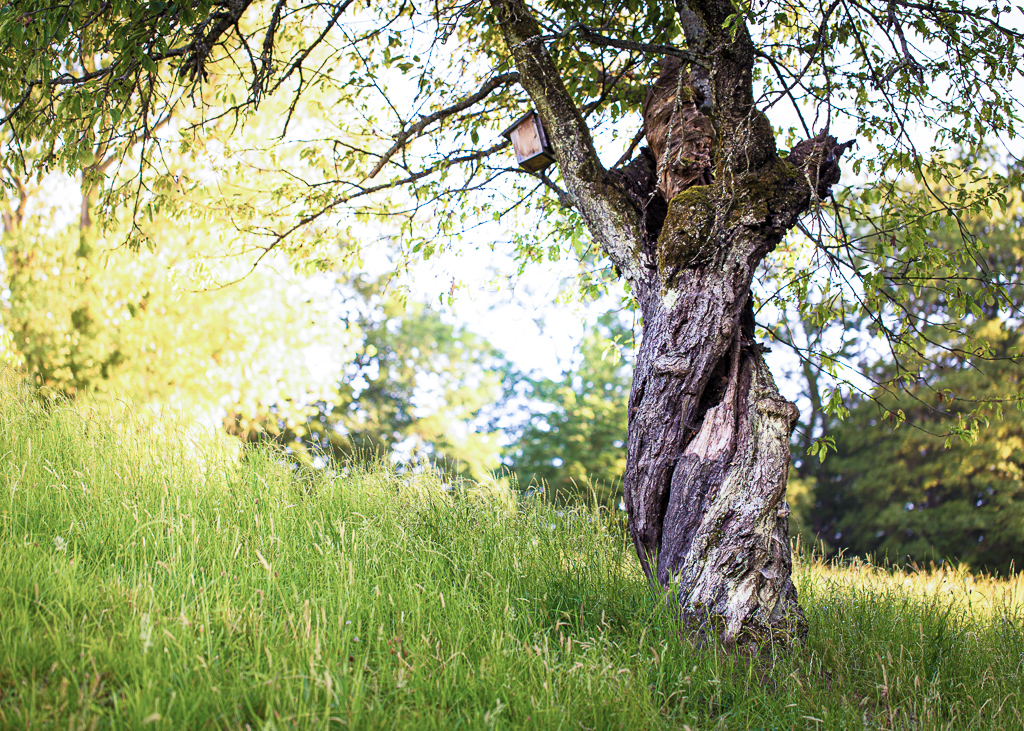
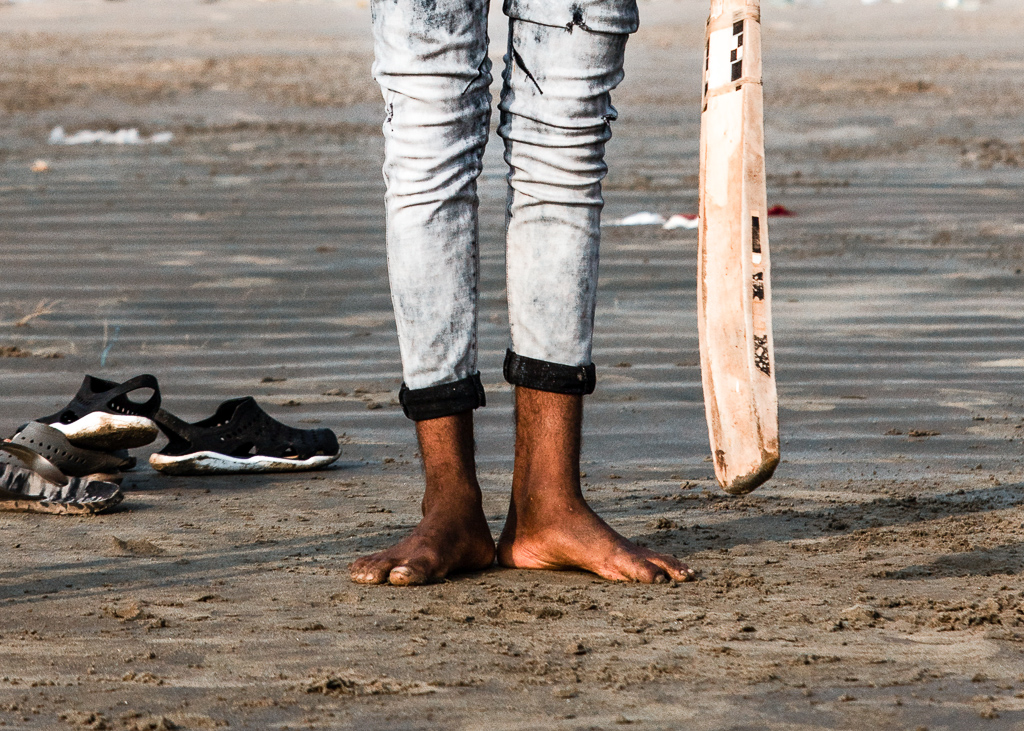
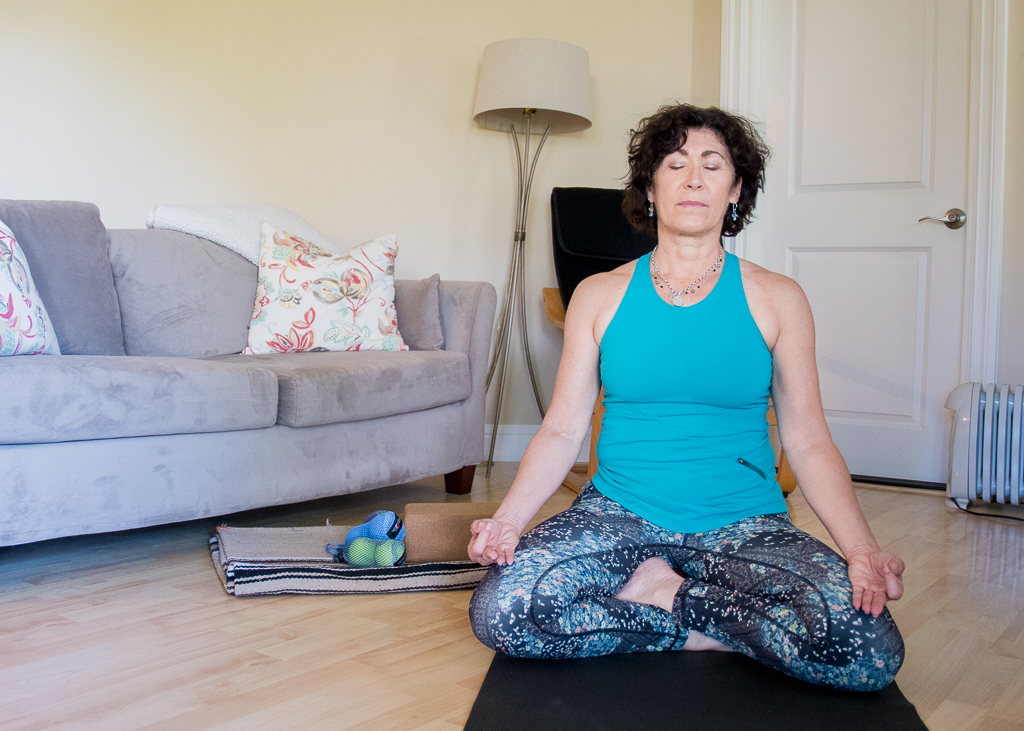
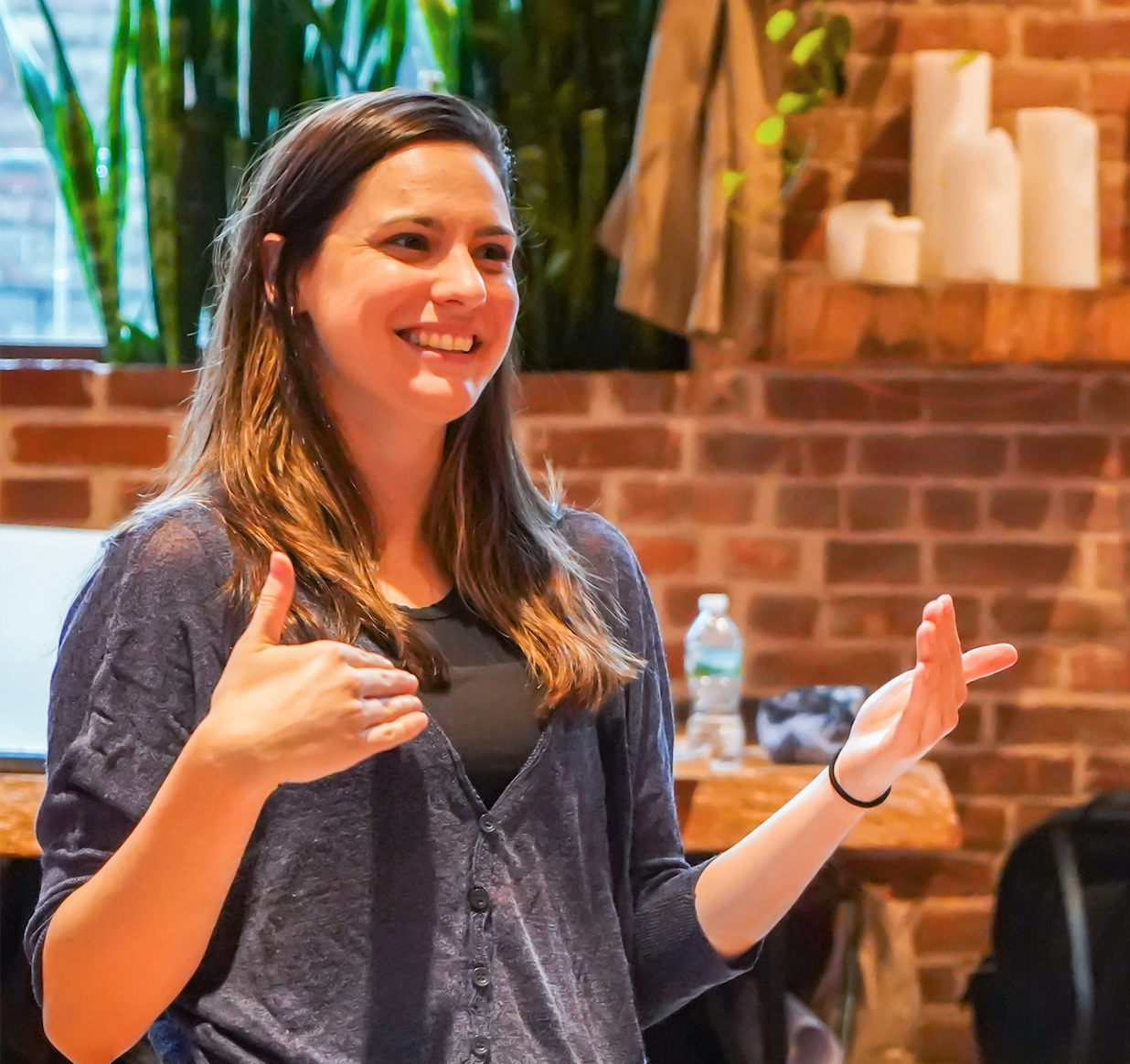


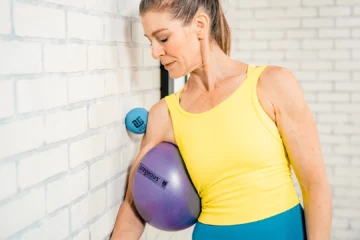





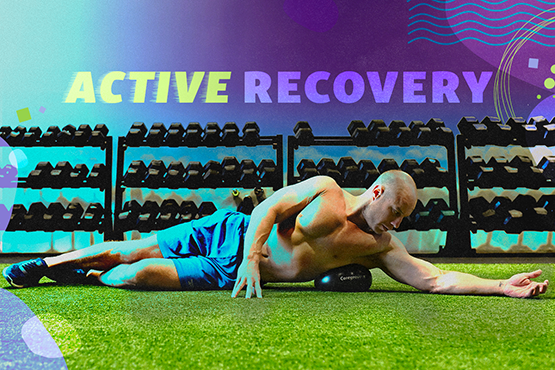
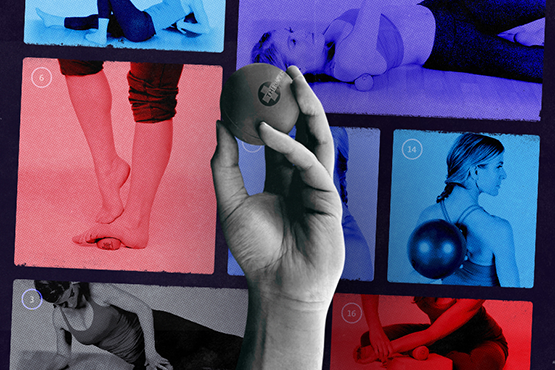
One of the many reasons why I love the Yoga Tune Up method is the opportunity and room for self-study. You are absolutely right in saying the fitness community is lacking in intentional compassion. Often in fitness classes, particularly in a group setting, it is about following the leader, making the shapes that the leader/teacher is making. Not much room for self exploration and self compassion there. As movement educators, we must hold space for intentional self exploration for students. Our classrooms should not be just another place for self-comparisons. Thank you.
The Loving Kindness Meditation made me feel calm and peaceful inside. I will say this in traffic or waiting in lines to bring a lift to the energy field around me. It’s true, when we find out why we are the way we are, especially from a recent neuroscience discovery, it can help us to have compassion for ourselves and others. Our resilience comes from compassion and compassion from knowledge. Education in these topics will serve humanity.
Thank you for this article. Educating people on emotional resilience is so important.
I’m glad there’s more discussion now around resiliency as it’s such an integral part of not only our emotional health, but our physical health. As the article states, there is no mind-body dualism. Our body is an extension or manifestation of our mind, and when we have trouble recovering from emotional turmoil and trauma, our body will have trouble healing as well. Compassion is the secret ingredient in so many practices lately. I love the meditation at the end.
merci pour cet article sur la résilience, un terme effectivement qui n’est pas si simple à comprendre. Cet article m’a éclairé, et merci pour le rappel de cette méditation que j’ai pratiquée il y a bien longtemps.
Thank you for this article! “I have found that the key to fostering resilience is compassion, and the key to compassion is education. Many of us are taught to feel ashamed of our natural response to difficult situations.”
Building resilience is so important, especially these days with COVID still a concern. Lovingkindness meditations are one of my favorites! Thank you for this article!
Resilient – I have been described this way for much of my life. I always thought it was meant as a compliment, but as life went on, felt it meant, I had struggled a lot, been dealt bad hands too many times to count, or felt like I was repaying sins of my past lives. “My need to understand I believe came f rom a need to feel a visceral part of this tribe we call humanity. Curiosity, to me, became a reverent practice of empathy – first toward others and eventually toward myself.” This is me in each and every word.
“it is almost impossible to cultivate self-compassion when “how we are” contradicts what we or society think “we should be”,” more profound words. How do we heal without self-compassion? How do we have self-compassion when we aren’t who or what we are “supposed to be?” This is where the sankalpa “I trust myself to feel authentically,” can be very powerful in our daily practice, or whenever practicing self-care fitness.
The Love Kindness Meditation if one I will start making an effort to do on a regular basis with myself, my loved ones and my classroom students, who can always benefit from some increased confidence, self-esteem and quiet reflective time.
Thank you for this beautiful article that breaks down resilience and identifies that compassion is the essential tool that helps the body bounce back from traumatic forces. Grateful for your work!
I thought this article interesting – and it was written BEFORE the pandemic – talk about needing to have compassion, self compassion, and a world situation where many people where just trying to survive. Several things interesting – the author states that she thinks as a fitness industry we do not practice “Intentional compassion” . Could the fact that the “industry” is relatively new (40 years? ) and people are working so hard to validate the industry, make enough money to support themselves, prove themselves, create credibility? We’ve worked really hard to get as accepted as other professions, and align ourselves with medical community, and to be defined as a necessity for health, not just a “hobby” for those who feel like it…. anyway, just wondering on that…
My son was born with the most empathy of any person I know – I love the nueroscience in this article, and wonder if my son has a bigger insula than others?
Thank you for your initiatives to better educate yoga professionals on the implications of trauma in the body. Through neuroplasticity, the brain can reorganize somatic responses to trauma. This is an excellent article!
I never understood clearly what resiliance actually is, and it seems that resiliance can’t exist without fear or stress. Thanks for giving us the right to experience uncomfortable emotions, and explaining that having self compassion through information can actually help us practice being more resiliant.
When I read the part where you say that knowledge is a great tool for self-compassion, it really made sense to me. Knowlege allows to aknowledge what happend ou happened to the mind, to the body, in a neutral way. This is very nice to keep in mind.
Thank you for this meditation. I will use it. With the Covid-19, I feel broken and I need more compassion. It will help me (and others around me.)
I’m so impressed with your important research and work with the open-ended questions concerning resilience. You remind me of Brene Brown and her important work behind vulnerability. Just as YTU helps us map our bodies, I hope your work does more to map our brains ❤️
Wonderful article! Such an important topic when working with students
This is such important work!
Very well written! As a fellow trauma informed teacher, your acknowledgement that people are not broken is huge. The body and kind are indeed resilient and compassion is always needed. Thank you for this!
I love a Metta meditation practice! To me Compassion is at the core of a yoga practice — for myself and others.
I agree that Compassion is a central part of resilience and this is such mportant work and discussions for movement cutler
Why is it so much easier to show self compassion to others before ourselves. Thank you for the insight in how we can bring more compassion and self compassion to our students and community.
Hi Emily, great article! I enjoyed your perspective on resilience, as I am very fascinated with this topic as well. There is a medical study about ACEs (Adverse Childhood Experience) that explores how events that happen in our childhood impact our adult life. One of the avenues it explores is resilience. It is amazing how it can make a difference. Thanks!
I never thought about resilience as apart of yoga. However; it makes sense. Compassion is something we often recognize and it’s a smart connection to resilience. Thank you for including the Loving Kindness Meditation, it’s such a helpful and wonderful tool on the self discovery path.
I find very interesting the role that compassion plays in the resilience of the person, where self-pity is directly related to the resilience of the person. If I take care of myself being kind to me, listening to my limits, giving me permission to make mistakes and feel compassion for me in difficult times that is an indicator of resilience and the good news that Emily gives us is that it is possible to cultivate resistance with conscious practice of compassion.
wendy
When I went to Vipassana years ago, I really became aware of my body’s response to the mental/emotional fluctuations that were going on in my mind. It was very interesting to see the connection. I commonly use breath as a way to help regulate my body/nervous system’s response in moments of agitation. I appreciate the insight around using compassion as a valuable tool as well. I’m very curious about the studies that have been done on the Loving Kindness Meditation. I’ll go see if I can find any of them, but do you happen to have any direct links?
This article seems very interesting for me, I’ve just noticed that I’ve gone through experiencing resilience several times in my life without even knowing or being aware I was. Now by knowing and learning about it, the idea of letting people know what this is and how it works seems as a very important thing to me, there are alot of people around the world that could get alot of benefit of it, just learning that getting to know more about yourself by asking WHY? to what you are feeling or the way how you are reacting to certain circumstances in your life and knowing that this could bring not only compassion towards other people but also towards yourself could bring alot of peace and / or ease to the lifes of alot of people. I think this practice could bring light back to people which are thinking they could never get it back again.
Resilience is a concept that I have been contemplating a lot. As we move through life, we are confronted with ups and downs; loss and devastation. I love the idea of cultivating compassion for oneself. Especially during a difficult period. I have noticed myself being frustrated with my own process of grief when I might, instead, be gentle with myself. Thank you for this thought provoking article.
Watching resilience from the lens of compassion is such an open hearted way to accept how we feel and what we are feeling. It’s like being the peaceful warrior. I had difficult times in one point of my life where I felt so unhappy and I just gave myself permission to feel that way and let it show. It was a harsh road but I felt that having that openness to myself to express how I felt, helped me heal myself. Being with who I was at that time, and as you say, being compassionate at all times, knowing that to be sad is just a part of our human nature, nothing to be ashamed of. For me, it was a healing process. Thanks for sharing the Loving Kindness meditation, in a way it always comes back to you when you need it.
I absolutely love this post! The act of compassionately sharing knowledge while encouraging compassionate curiosity is what I want to bring to my yoga students. Most people are too hard on themselves all the time. Let us practice continually shifting the focus from what we believe we are “doing wrong” to how can we observe our bodies and minds with childlike curiosity, love, and appreciation for all our innate magnificence.
Thank you for this reminder. I have incorporated this meditation into my classes in the past and it has always been well received. Have not practiced this in awhile myself though. I have done other forms but not this particular one. It resonates with me. Time to bring this forward again. Important to speak to yourself with kindness but also to send out good thoughts into the world for others.
I find very interesting the role that compassion plays in the resilience of the person, where self-pity is directly related to the resilience of the person. If I take care of myself being kind to me, listening to my limits, giving me permission to make mistakes and feel compassion for me in difficult times that is an indicator of resilience and the good news that Emily gives us is that it is possible to cultivate resistance with conscious practice of compassion